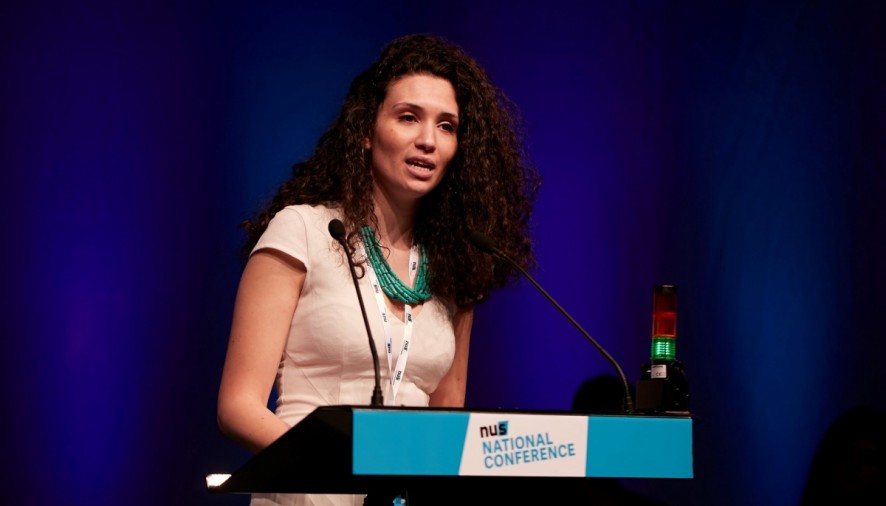The election of Malia Bouattia as President of the National Union of Students has led to division this week, as allegations of anti-semitism and islamophobia cast shadows on the celebrations. Incumbent Megan Dunn was defeated 372 votes to 328, in an NUS election which has received more media coverage than any in the organisation’s history.
The first woman of colour and first muslim to hold the position, Bouattia was elected having spent two years as the NUS’ Black Students Officer, a role in which she has helped champion campaigns such as ‘Why Is My Curriculum White?’, as well as lobbying to increase ethnic diversity amongst NUS candidates, and for the creation of a Transgender Students Officer role. She has also campaigned against the PREVENT legislation, saying it posed a threat to academic freedom. At the 2016 NUS conference she spoke evocatively about her experience as a child refugee, and swore to fight the government’s cuts to bursaries, schools and the NHS.
Ms Bouattia’s election has been called historic, with many welcoming her appointment as a positive step for students of colour, muslim students, and students of international parentage.
In the weeks leading up to the election however, questions were raised about Ms Bouattia’s suitability for the role. Allegations of anti-semitism have been levelled at the new President, leading to groups from Oxford and Cambridge to threaten disaffiliation from the NUS. Over 50 Jewish Society leaders from across the country have signed a letter asking her to address comments she had previously made; including referring to the University of Birmingham as a, “Zionist outpost”, and calling the government’s PREVENT strategy the result of a “Zionist lobby”.
In her open response to the letter published via Facebook, Ms Bouattia said, ‘I want to be clear that for me to take issue with Zionist politics, is not me taking issue with being Jewish’ expressing her alarm that the students had, ‘drawn a link between criticism of Zionist ideologies and anti-Semitism’. She also stressed her commitment to, ‘creating a cohesive and inclusive society’ and, ‘to do [her] best to represent all students’.
The attention generated by the letter led to widespread media scrutiny of the NUS Officer’s political history, with much of the focus on her decision to oppose a motion condemning IS until it was reworded to avoid islamophobic language. She would later speak out in support of a new motion condeming IS shortly after.
Widespread media reports that seemed to depict Ms Bouattia as an anti-semite and a terrorist sympathiser have been in turn condemned by many who have spoken out in defence of the new President, believing she has been unfairly targeted because of her race and religion.
Ms Bouattia finally sought to put an end to allegations of anti-semitism and terrorist sympathies levelled against her in an article published in The Guardian, stating, “There is no place for anti-Semitism in the student movement, or in society. If any of my previous discourse has been interpreted otherwise, such as comments I once made about Zionism within the media, I will revise it to ensure there is no room for confusion.”
Although acknowledging that many Jewish students remained unsatisfied with her response to their questions, following Ms Bouattia’s election the Union of Jewish Students released a statement saying that, “UJS is proud of its long history and long standing positive relationship with the National Union of Students. Now that Malia Bouattia has been elected president, we hope that that relationship will be able to continue.”
Benjamin Cook and Rachel King

